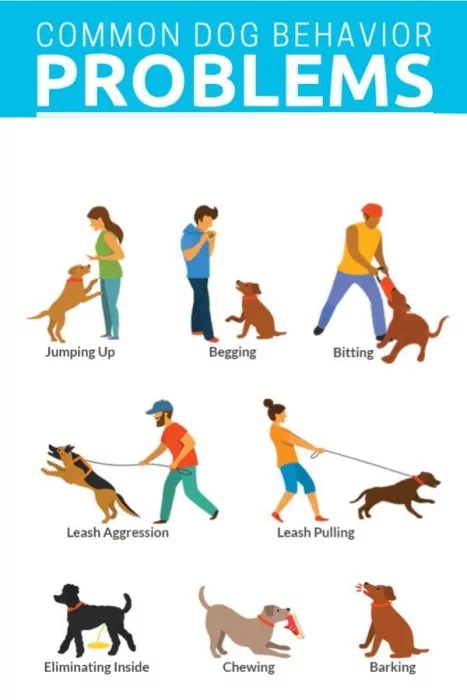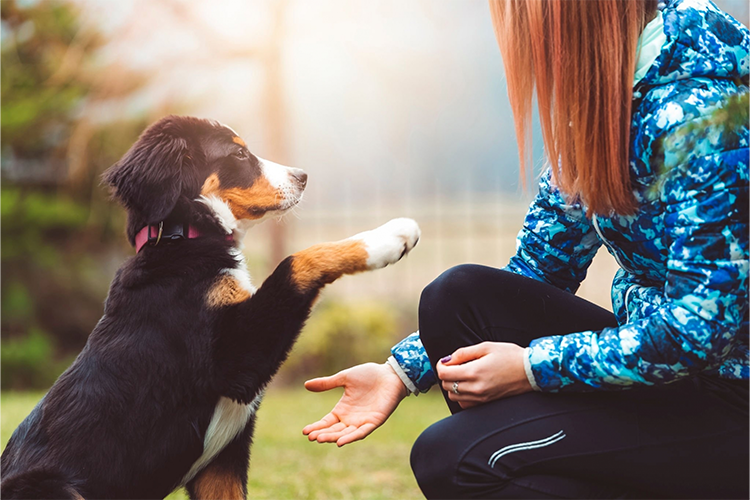Specialist Insights on Dog Training Charlotte NC: Transform Your Puppy Today
Specialist Insights on Dog Training Charlotte NC: Transform Your Puppy Today
Blog Article
Unlock Your Canine's Possible: Proven Dog Training Techniques for Success
Effective pet dog training is a nuanced procedure that pivots on understanding canine actions and employing medically backed strategies. By including positive reinforcement, establishing clear commands, and prioritizing socialization, canine owners can grow an efficient partnership with their pet dogs.
Understanding Dog Habits
Comprehending pet actions is necessary for reliable training and fostering a positive connection between canines and their owners. A thorough understanding of canine body language, articulations, and social communications is critical for identifying their feelings and needs. Canines communicate largely with non-verbal signs; for example, a wagging tail may suggest excitement, while pinned ears can signify worry or submission.

In addition, environmental aspects play a substantial function fit a pet's actions. Changes in regular, brand-new environments, or the visibility of unfamiliar individuals can result in stress or anxiousness in pets. Identifying these triggers enables proprietors to minimize unfavorable responses and establish appropriate training techniques.
Ultimately, a deep understanding of canine actions lays the structure for effective training approaches, improving both habits and the general bond between the canine and its owner. dog training near me. This knowledge is vital for cultivating a well-adjusted, satisfied canine friend
Positive Support Strategies
Efficient training counts greatly on favorable support strategies, which have actually been shown to produce substantial cause shaping wanted behaviors in pets. This strategy includes compensating a pet dog for displaying certain behaviors, therefore boosting the likelihood that these habits will be duplicated. Benefits can take different forms, consisting of deals with, praise, toys, or playtime, depending on what motivates the private dog.

It is necessary to gradually phase out benefits as the pet dog learns the behavior, transitioning to intermittent reinforcement. This strategy maintains the behavior gradually while protecting against dependence on continuous incentives. By concentrating on favorable support, trainers can cultivate a trusting partnership with their dogs, advertising a participating and healthy and balanced training setting that boosts overall obedience and efficiency.
Developing Consistent Commands
A fundamental facet of successful pet training is the establishment of consistent commands. Consistency in commands is crucial for effective interaction in between the fitness instructor and the pet dog. When commands are consistent, pets discover to link specific words with desired behaviors, which increases the training procedure and improves understanding.
To develop constant commands, it is necessary that all family participants use the same terms and gestures. As an example, if a single person uses "sit" while another states "take a seat," it can produce complication for the pet dog. Select clear, unique words for commands and make certain everyone associated with the pet dog's training complies with these selections.
In addition, repetition is vital. Strengthen commands through regular technique, ensuring that the pet dog obtains sufficient chances to respond appropriately. When a dog effectively follows a command, immediate positive support ought to follow. This could be in the form of deals with, praise, or playtime, strengthening the connection between the activity and the command.
Last but not least, hold your horses. Establishing regular commands takes some time and effort. With commitment and quality, you will aid your pet develop a strong understanding of expectations, eventually resulting in a well-behaved companion.
Socialization and Exposure
Interacting socially a canine is essential for promoting a well-adjusted and certain friend. This procedure involves exposing your canine to a variety of environments, people, and other pets to create their social abilities and flexibility. Early socialization, preferably between the ages of three hamster potty litter to fourteen weeks, is vital, as it lays the groundwork for a pet dog's future actions.
Throughout socializing, purpose to supply favorable experiences in various setups, such as parks, busy streets, and homes with other pet dogs. Introduce your canine to various stimulations, including audios, views, and smells, ensuring that each encounter is rewarding. This exposure helps alleviate concern and stress and anxiety, leading the way for a much more durable pet.
Engaging in regulated group play sessions with other pets can likewise boost social abilities, instructing your family pet suitable interactions and limits. Always check your pet dog's convenience degree during these experiences, slowly boosting direct exposure as their self-confidence grows. Remember, the objective is to produce an all-around pet dog that flourishes in diverse circumstances, promoting a harmonious partnership with both human beings and various other animals. Prioritizing socialization will considerably contribute to your canine's general joy and actions throughout their life.
Overcoming Common Training Obstacles

One more frequent issue is interruption. Pet dogs may struggle to concentrate in strange or busy settings. Slowly desensitize your dog to diversions by starting training in a silent atmosphere and slowly presenting even more stimulations as they end up being competent (Dog training). Positive support techniques, such as treats and appreciation, can keep motivation and emphasis.
Additionally, behavior issues like leaping or extreme barking can come to be aggravating. Address these by educating different actions, such as resting steadly when welcoming guests. Consistency and persistence are important; reinforce preferred behaviors constantly and prevent scolding, which can cause complication.
Last but not least, recognize that each canine is one-of-a-kind, and training house train adult dog timelines might differ. Tailor your strategy to your pet's private needs, and seek expert support if essential. With perseverance and the right techniques, getting over these difficulties can cause a trained, happy canine companion.
Verdict
Finally, unlocking a canine's prospective demands a detailed technique that includes an understanding of canine habits, the application of positive support methods, and the facility of consistent commands. Early socializing and direct exposure to diverse environments additionally enhance a pet dog's flexibility and self-confidence. By addressing usual training difficulties with customized strategies and perseverance, a participating and harmonious partnership between pet dog and handler can be fostered, inevitably resulting in a mannerly friend with the ability of prospering in various circumstances.
Effective pet training is a nuanced process that pivots on recognizing canine habits and using scientifically backed approaches.Understanding pet actions is vital for effective training and promoting a favorable relationship between canines and their owners.Reliable training relies greatly on positive support techniques, which have actually been revealed to produce substantial outcomes in shaping desired habits in dogs. When commands are pop over to this site uniform, canines learn to link particular words with wanted behaviors, which accelerates the training process and boosts understanding.
In final thought, unlocking a dog's potential requires a thorough approach that includes an understanding of canine actions, the application of positive support strategies, and the facility of consistent commands.
Report this page